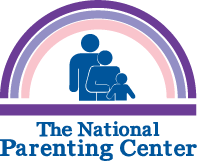Artistic expression opens the heart to new learning for many children, allowing them to gain control over strong feelings, and letting them transform emotions into new and creative energies. Provide your child with paint, clay and collage materials for creating visual art. Supply her with simple and sturdy musical instruments she can use to express […]
Educational
Young children feel a sense of satisfaction in learning to write letters, and eventually moving into cursive script. However, this excitement turns to frustration for many kids when they encounter difficulties, or are exposed to a handwriting program that places too many demands on them at school. Here are some suggestions for helping your child
Many kids do poorly in school because they have a hard time remembering the many different kinds of facts required for academic success. Here are some techniques you can encourage your child to use to help him develop a better memory for all the information he has to digest during the school day: • Suggest
Over half a million children in the United States are estimated to be currently taking the drug Ritalin for hyperactivity. While many experts claim the drug helps children succeed in school by calming them down and reducing their distractibility, there are growing concerns that the disadvantages of using Ritalin may far outweigh its advantages in
You’ve been informed that your child isn’t working up to grade level and may need to be kept back in the same grade during the coming year. What should you do? Repeating grades has been an important administrative tool for dealing with late bloomer, underachievers, and misfits of all kinds for decades. However, research suggests
Superlearning or suggestology (as it is sometimes called) is a special form of education that brings together music, relaxation, and rhythm to help children learn more effectively. The way it works is that children in a classroom setting lie on a floor or sit in their chairs in a comfortable and relaxed position, while music
Geometry seems like a complicated subject for a preschooler to be learning about, but it doesn’t have to remain a subject that only older kids get to study. You can help your child begin to appreciate geometry by focusing her awareness on the shapes around her. • After showing her two or three basic shapes
Kids are natural scientists; they’re always wondering about things, testing their ideas about the world, and asking questions about natural events. You can help your child make use of his inquiring mind by providing experiences around the home that involve scientific principles. • The bathroom is a great place to begin. Fill the bathtub with
Recent news headlines have emphasized the ability of Japanese school children to outscore American kids in most academic areas. For example, the average Japanese high school student scores as well as the top 5% of U.S. High Schoolers in math. Many parents want to know why the Japanese are able to perform so much better
While many conflicting philosophies and techniques exist for helping children draw, there are several general suggestions any parent can follow in providing a nurturing environment for the budding artist. • First, show an interest in your child’s work. Get involved by creating pictures together, or you might draw something on a piece of paper, have












